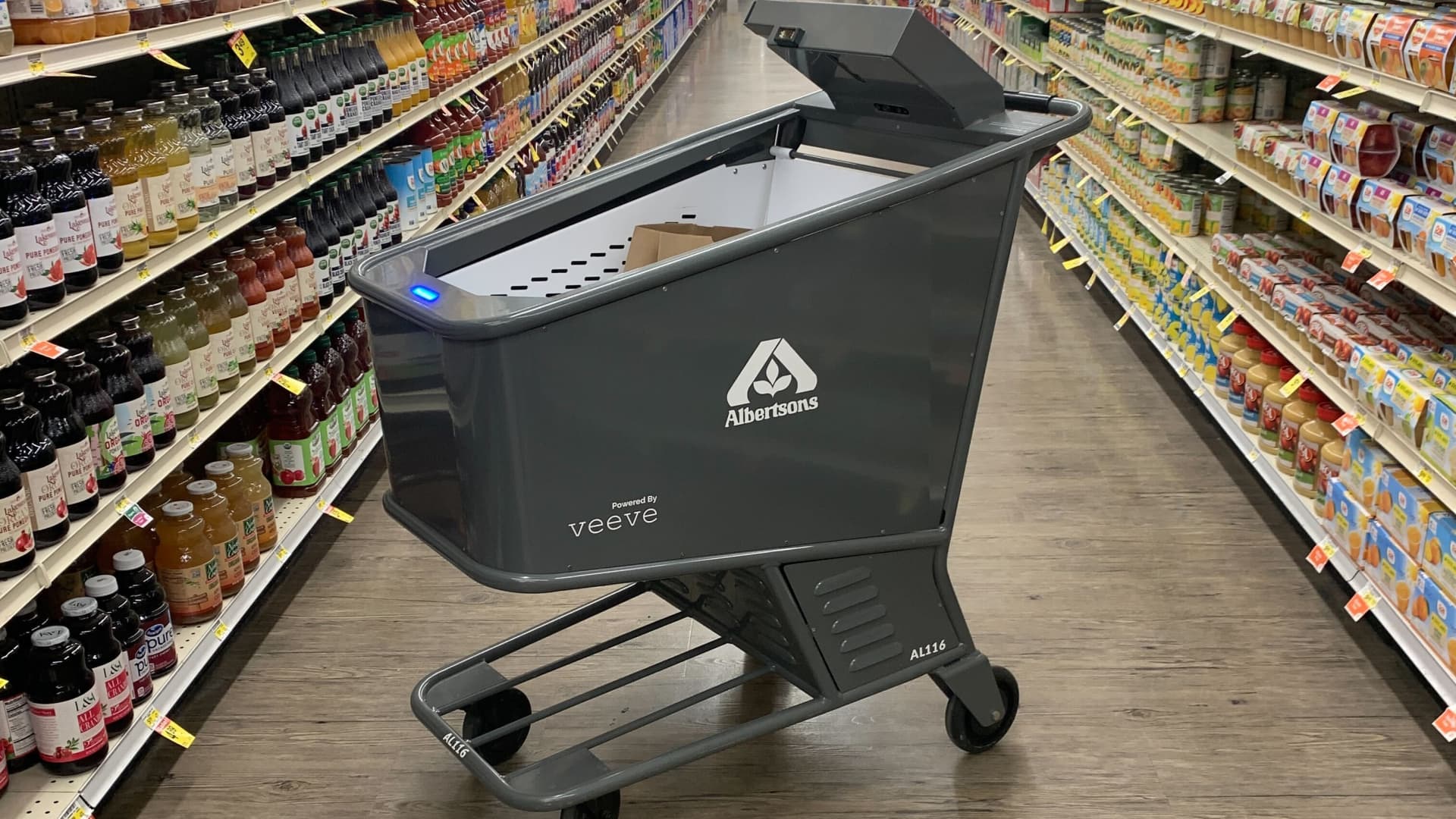
Albertsons is deploying self-checkout grocery carts in some of its locations to try to make in-person shopping easier as consumers head back to brick-and-mortar stores.
The carts are made by Veeve, a Seattle-based start-up founded by two former senior Amazon managers in 2018. Veeve is one of several companies developing smart grocery carts, which often use cameras and sensors to tally items, allowing shoppers to skip the checkout line.
Amazon launched its own product, called Dash Carts, in 2020, while grocery delivery platform Instacart acquired smart cart maker Caper AI late last year. Other grocers, including Kroger, have been testing the technology at a handful of stores.
They’re responding to consumer demand, as in-store shopping rebounds from the coronavirus pandemic. A report from Mastercard SpendingPulse found in-store sales rose 10% in April from a year earlier, while e-commerce transactions dropped 1.8%. Smart carts offer a hybrid approach, allowing shoppers to speed up the process, with the help of their phones.
In November, Albertsons began testing Veeve carts at two of its stores in Idaho and California. The company is now expanding its partnership and adding the carts to more locations, with the goal of having them in dozens of stores. Albertsons had 2,278 food and drug stores in the U.S. as of last December.
The challenge for Veeve and its rivals is proving to retailers that the carts, which can reportedly cost between $5,000 and $10,000 each, are a worthwhile investment. They also have to convince shoppers to use them, an issue Amazon has struggled with after adding its Dash Carts to some Fresh supermarkets, Business Insider reported.
Veeve CEO Shariq Siddiqui said in an interview that uptake has been strong. For retailers, Siddiqui said the technology can help them navigate labor shortages by freeing up cashiers to take on other roles.
“Stores are shutting down earlier than ever, just because they’re short-staffed so much,” said Siddiqui, who spent eight years at Amazon, primarily in its Alexa division. “One of the stores we deployed in is fully autonomous. There’s a lot of momentum going in that direction.”
The company has also found that basket size, in terms of units purchased and dollar amount, has been significantly higher than for people who use self-checkout. Siddiqui predicts Veeve can increase the basket size to be “bigger, if not more valuable than the cash register,” where the average transaction is roughly $200.
“Usage has been really high, which is what retailers care about,” Siddiqui said. “If customers use it the first time, they will come back.”
WATCH: Amazon launching smart grocery carts that track shoppers’ items




















